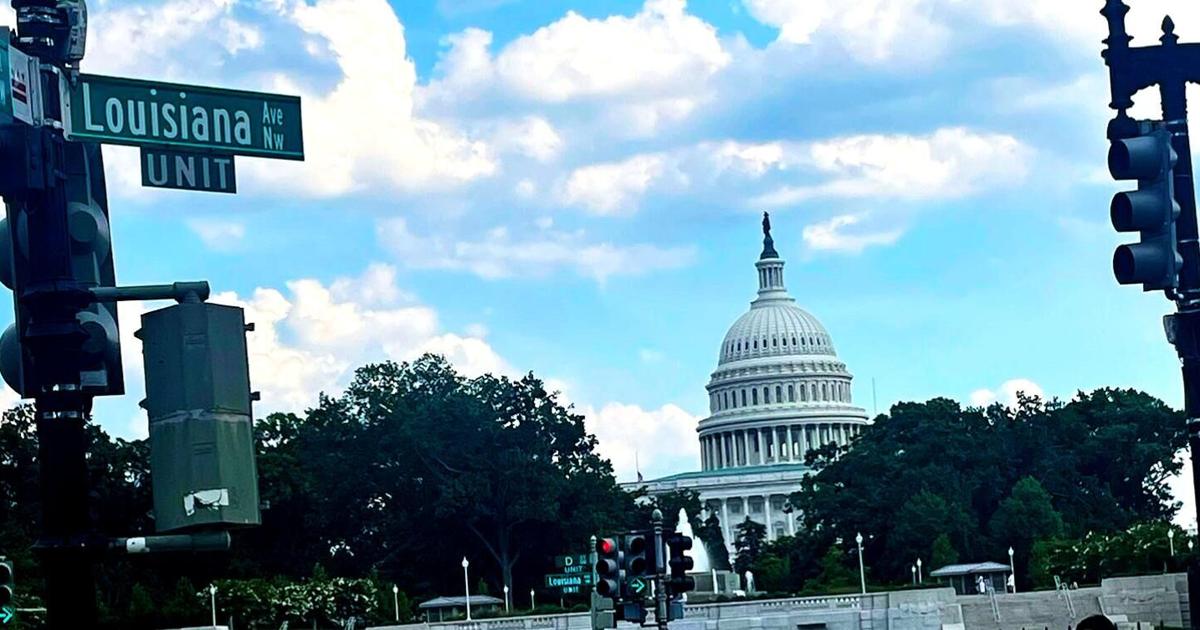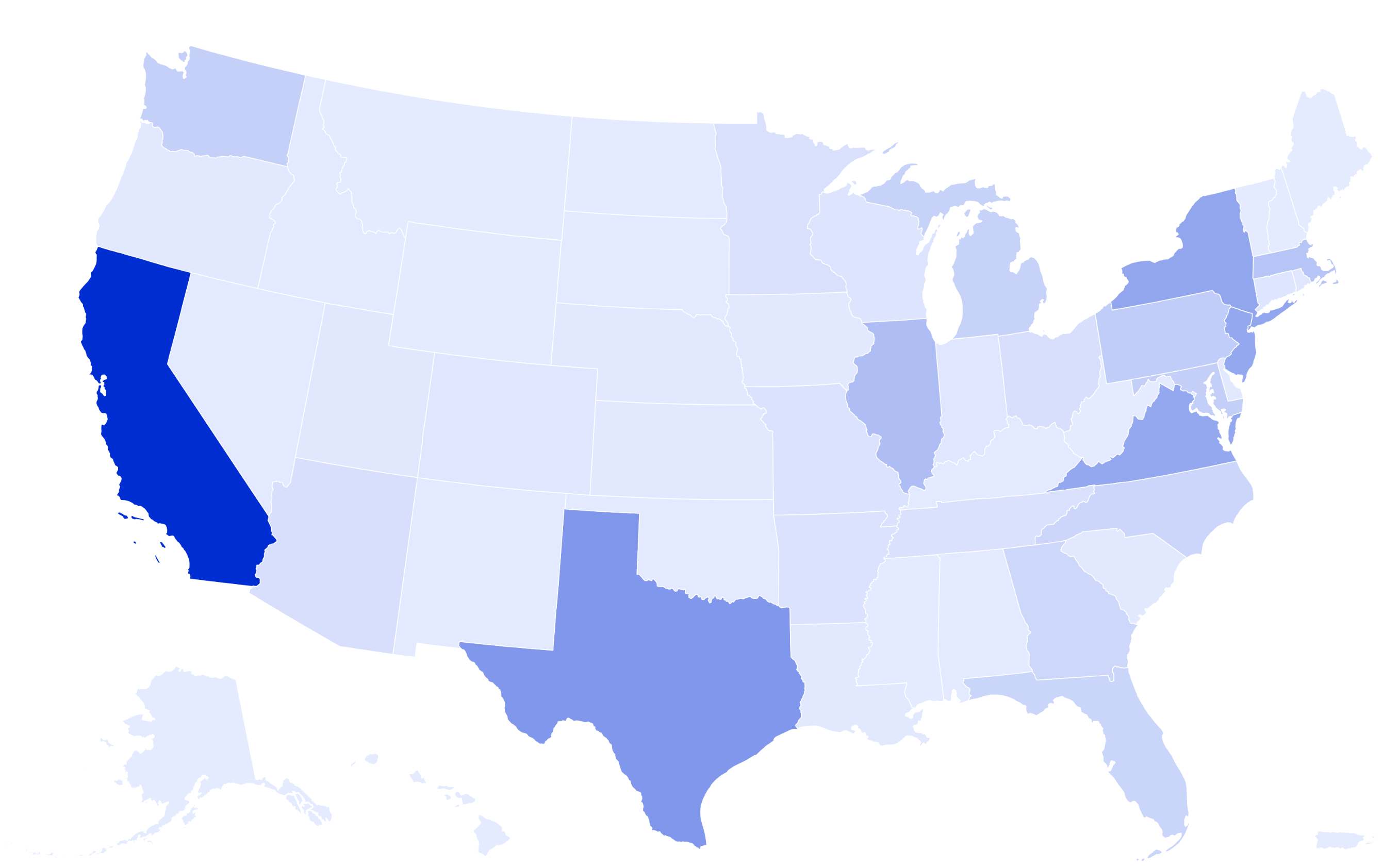
WASHINGTON — After a closed-door meeting with the president, congressional leaders of both parties took hard lines Monday, setting the stage for the federal government to shut down at midnight as Tuesday turns to Wednesday.
The situation was fluid and could change. Just what federal agencies would be targeted for closure if a deal could not be reached had yet to be made public.
Some services would continue. The military will still protect the nation. Social Security benefits will still be paid. Commercial airlines will still fly. Veterans Affairs medical facilities will remain operational.
A letter from the Office of Management and Budget stated that agencies receiving money in the recently enacted One Big Beautiful Bill Act, such as efforts to deport immigrants, will be protected.
But most government workers would be put on temporary leave — at least that’s what happened in the 10 previous shutdowns going back to 1980. This time, however, the Trump administration has ordered agencies to consider firing thousands of federal workers, instead of furloughing them, though nothing concrete had been released.
Perhaps the most immediate effect for Louisiana would be an end, at least temporarily, to flood insurance.
The National Flood Insurance Program will expire unless the Senate accepts without changes the House-passed resolution to continue government operations for another seven weeks. About 458,000 of Louisiana’s home and business owners have flood insurance.
Current policies will remain in effect until their expiration dates, but no new policies will be written and no existing policies will be renewed until the program is reauthorized.
Rep. Troy Carter, D-New Orleans, is co-sponsoring a bill that would extend the National Flood Insurance Program until November 21. But the House isn’t holding votes.
A spokesperson for Majority Leader Steve Scalise, R-Jefferson, said: “Democrat leaders whipped all their members, including those in flood-prone districts, to vote no on extending the National Flood Insurance Program, and they are now holding the program hostage to outrageous demands from their radical leftist base.”
Partisan gridlock
Senate Minority Leader Chuck Schumer, D-N.Y., said after meeting with President Donald Trump, “Their bill has not one iota of Democratic input. That is never how we’ve done this before.”
Vice President JD Vance answered: “We’re headed for a shutdown because Democrats won’t do the right thing.”
Unless Democrats and Republicans can agree enough to pass a “continuing resolution” in time, the federal government will shutdown for the first time since 2018, during Trump’s first administration, that lasted 35 days.
House Speaker Mike Johnson, R-Benton, on Monday told Republican members of the House to hold the line and stay on message.
“It’s fine to have partisan debates and squabbles but you don’t hold the people hostage for their services to allow yourself political cover,” Johnson said about Democrats on CNN.
House Minority Leader Hakeem Jeffries, D-N.Y., said Monday that the GOP needs to first agree to reverse of cuts to Medicaid and to extend premium tax credits that help 24.3 million low-income people purchase health insurance.
“Republicans control the House and the Senate and there’s a Republican president. If the government shuts down, it’s because Republicans want to shut the government down,” Jeffries said.
The House earlier this month passed a continuing resolution that punted any final decision until November 21. It’s called a “clean CR” because the resolution would make no changes to existing budget numbers.
The Senate has scheduled a series of votes Tuesday night. But the House is out of town and would have to approve any changes the Senate might make.
Neither Senate Majority Leader John Thune, R-S.D., nor Schumer sounded optimistic as they separately left the Capitol for the White House Monday afternoon.
Trump said about Democrats in the minutes prior to the meeting, “they’re going to have to do some things because their ideas are not very good ones for the country.”
Senate Republicans need seven Democratic senators to vote with them, but those numbers could vary.
At least one Republican, Sen. Rand Paul, of Kentucky, won’t back the continuing resolution because he rejected the amount of spending when it was put in place during the Biden administration.
Republican Sen. Susan Collins, of Maine, and Sen. Lisa Murkowski, of Alaska, support extending the Affordable Care Act’s tax credits, which would keep the insurance premiums for working, low-income Americans where they are now.
Some Democratic senators, however, have indicated they are open to backing a clean continuing resolution in exchange for promises that the premium tax credits would later be extended before they expire on December 31.



